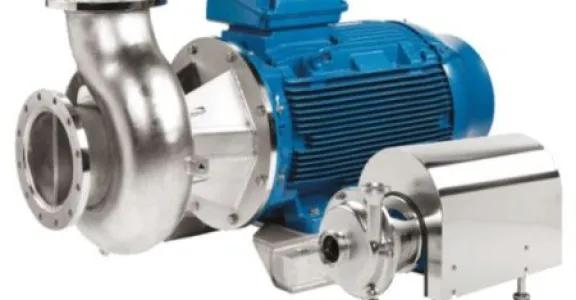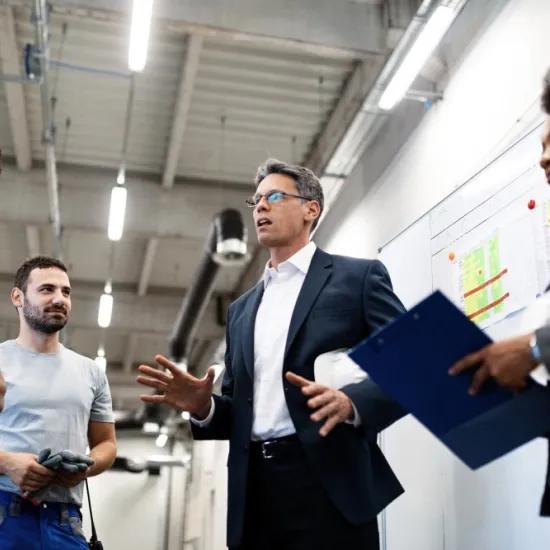In order to be more competitive, Packo Inox was looking for a way to optimise its production, in order to further improve throughput times and quality. It applied different strategies and recently made the first steps towards QRM, to enable further improvement.
Packo Inox is part of the Dutch Verder Groep and belongs to the 'Verder Liquids' division. Various activities are carried out at the production site in Diksmuide: design, assembly, finishing and testing of industrial pumps and hygienic components. In addition, the surface treatment of stainless steel products is also subcontracted to other companies.
Lean and flow
In the sectors where the company operates, short lead times are a major advantage over the competition. A few years ago, the company wanted to optimise its operations in order to shorten or predict turnaround times, improve the unclear status of orders, reduce the need to continuously put out small fires, etc. Orders were planned and processed on a weekly basis, manufactured in more or less random order, which meant that assembly and delivery came under high pressure towards the end of the week.
Packo investigated the possibilities of lean and started to apply the method. Later it evolved into its own strategy: 'Creating Flow'. The idea was to tackle the largest production group (with growth potential) first: i.e. customised centrifugal pumps. All pumps, small and large, contain the same number of parts and the production flow was adjusted accordingly. For this purpose, a Takt time and standard routing per pump were defined, and production was not started until all parts were present. All parts of one pump were also polished together in one go.
Some important results of the actions were visualisation of the flow, a halving of the lead time of a standard pump, a better distribution of the workload and more involvement of the team.
First steps towards QRM
Although the adjusted method was accompanied by many positive results, it was more difficult to apply it to the hygienic components, as it involved customisation and there is a great deal of fluctuation in production. In order to overcome these obstacles, Packo recently took its first steps towards Quick Response Manufacturing (QRM). The production was divided in QRM cells. In this way the delivery time could be met better and shorter delivery times were possible. This requires more flexibility and the ability of the operators to perform different tasks, which required additional training.
At present, production takes place in 19 cells, in which various activities are brought together. By introducing more flexibility in and across the cells, this number may be further reduced.
Digital support of the cells
Until recently, all the experience and knowledge relating to the production planning of the hygienic components was joined in one person, who spent many years planning efficiently by hand, but who is now retired. This was one of the reasons why we decided to switch to the use of the production control package Propos, which monitors the status of orders in real time and shows the priorities on touch screens in production. This eliminates the need for employees to work on the basis of outdated paper information and makes it possible for employees to work on the right issues at all times.
The changeover to Propos forced the company to start working differently. Therefore, the next steps towards QRM were taken, which included further informing the staff about the strategy and some of the staff members followed the QRM Silver training.
In the past year, the company took important steps forward by setting up QRM cells, with the Propos software further supporting the teams in the cells. In the space of six months, the number of products ready on time has more than doubled.
(Source image: Packco Pumps)




